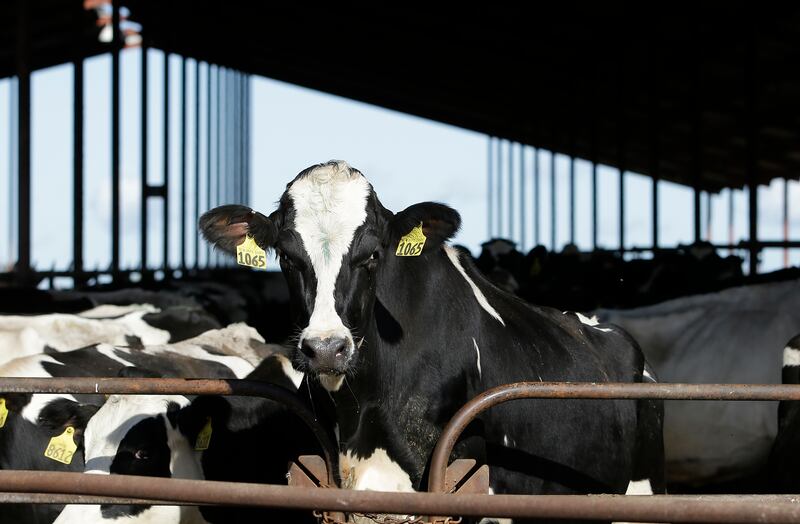Pasteurization has protected the U.S. milk supply from danger related to a bird flu outbreak in dairy cattle. That’s according to federal regulators who said preliminary testing of the milk where fragments of a highly pathogenic avian influenza strain had been found showed no live virus.
The U.S. Food and Drug Administration announced the result of testing Wednesday, amid concerns the virus that made dairy cows sick in nine states might have spread to their milk. While a sampling did find viral fragments, the advisory said that “additional preliminary testing did not detect any live, infectious virus.”
Nor was active avian influenza found in testing of cottage cheese and sour cream, according to Donald A. Prater, acting director of the FDA Center for Food Safety and Applied Nutrition, who was part of a media briefing this week. “Findings from the U.S. government partners as well as academic researchers do not change our assessment of the safety of the milk supply,” he told reporters.
As Deseret News reported last week, during earlier sampling by the FDA, traces of avian influenza’s viral fragments were discovered in 1 in 5 samples of milk that were tested nationwide. Most of the positive results were in areas where the outbreak had been found in dairy cows.
The report says that, based on egg inoculation testing, deemed the gold standard, “pasteurization is effective in inactivitating the virus.”
Per Deseret News’ earlier reporting, in that test, viral fragments found in milk are injected into an egg to see if the virus replicates.
The FDA also tested samples of retail powdered infant formula and toddler formula and found no active bird flu. The agency is also testing pooled raw milk that’s on its way to being pasteurized and processed for retail sale. “This will be used as a basis to characterize potential virus levels that pasteurization may encounter — and will be used to inform studies to further validate pasteurization.”
The agency is still “strongly” advising people not to consume raw milk or raw milk products.
Additional products will be tested as it seems advisable, the FDA said, noting it’s continuing to identify products and test them for any risk.
What about the beef supply?
Federal officials are also working to soothe concerns that beef cattle might also be infected by avian flu.
Per The Washington Post, “To date, no H5N1 infections have been reported in beef cattle and the Agriculture Department has received no reports of symptoms in beef herds, Marissa Perry, spokeswoman for the agency, wrote in an email Tuesday. At a scientific symposium on H5N1 hosted by the Association of State and Territorial Health Officials last week, a top USDA official said beef cattle are at lower risk because they are not kept in as close quarters as dairy cows, which are often kept in more confined spaces and share food and water sources.”
While officials are confident the meat supply is safe, there are plans to sample ground beef at retail stores in the states where outbreaks in dairy cattle have occurred, per the Post.
Those states where dairy cattle have tested positive for the highly pathogenic avian flu include Colorado, Idaho, Kansas, Michigan, New Mexico, North Carolina, Ohio, South Dakota and Texas. NBC reported that the cases “appear to have all originated among herds in Texas, then spread as cattle were moved across state lines to other farms.”
In the media briefing, Chief Veterinary Officer Rosemary Sifford from the U.S. Department of Agriculture said that about 1 in 10 cows in the affected dairy herds show symptoms and most recover without assistance within roughly two weeks.
The virus has not mutated in a way that appears to make spread to humans common. Just two people — both with mild symptoms — have been diagnosed with bird flu in the U.S., one recently and the other a couple of years ago. But the Centers for Disease Control and Prevention has asked those who work closely with the dairy herds that are part of the outbreak to monitor themselves closely for symptoms. That’s about 100 people. The 25 who’ve been tested already were all negative for avian influenza.


